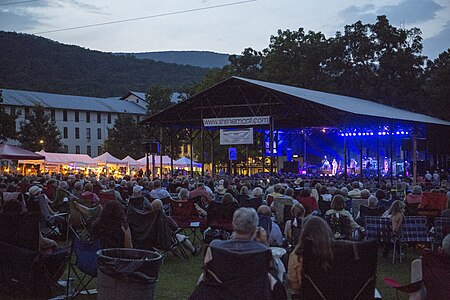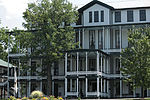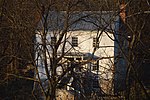Shenandoah Valley Music Festival

Shenandoah Valley Music Festival is the longest running music festival in Virginia. It presents a concert series each summer that takes place mid-July through Labor Day weekend at Shrine Mont in Orkney Springs, Virginia. The Festival started in 1963 as a way of bringing symphonic music to the rural Shenandoah Valley. Symphonic music is still included in the series; other genres including bluegrass, country, folk, pop-rock, roots, and Americana are also presented. Past artists have included Bruce Hornsby, The Nitty Gritty Dirt Band, Home Free, The Temptations, Mary Chapin Carpenter, Kenny G, LeAnn Rimes, Ricky Skaggs, Kris Kristofferson, Pure Prairie League, Poco, and The Beach Boys.The Shenandoah Valley Music Festival is a nonprofit organization.Concerts take place in the pavilion of Shrine Mont, formerly the Orkney Springs Hotel, which is listed on the National Register of Historic Places and is now owned by the Episcopal Diocese of Virginia. The Shenandoah Valley Music Festival has held its concert series each summer since 1963. Despite the Coronavirus epidemic in 2020, the Shenandoah Valley Music Festival still took place with strict public safety measures.
Excerpt from the Wikipedia article Shenandoah Valley Music Festival (License: CC BY-SA 3.0, Authors, Images).Shenandoah Valley Music Festival
Shrine Mont Circle,
Geographical coordinates (GPS) Address Nearby Places Show on map
Geographical coordinates (GPS)
| Latitude | Longitude |
|---|---|
| N 38.795526 ° | E -78.81805 ° |
Address
Shrine Mont Circle 498
22810
Virginia, United States
Open on Google Maps








